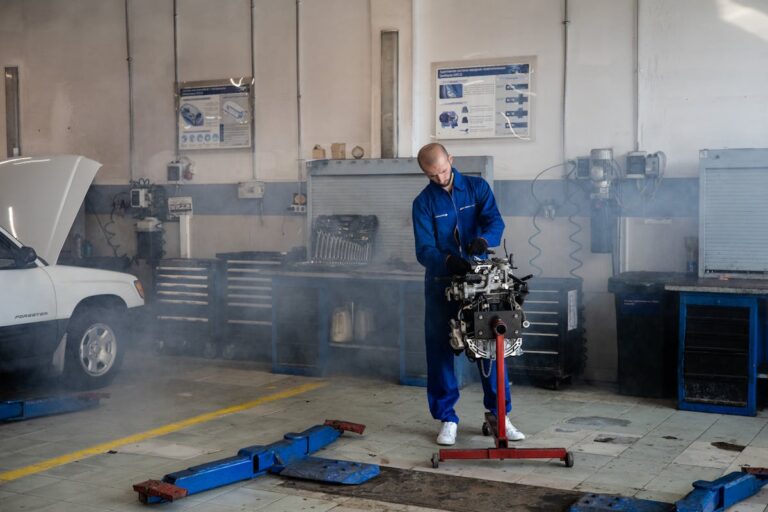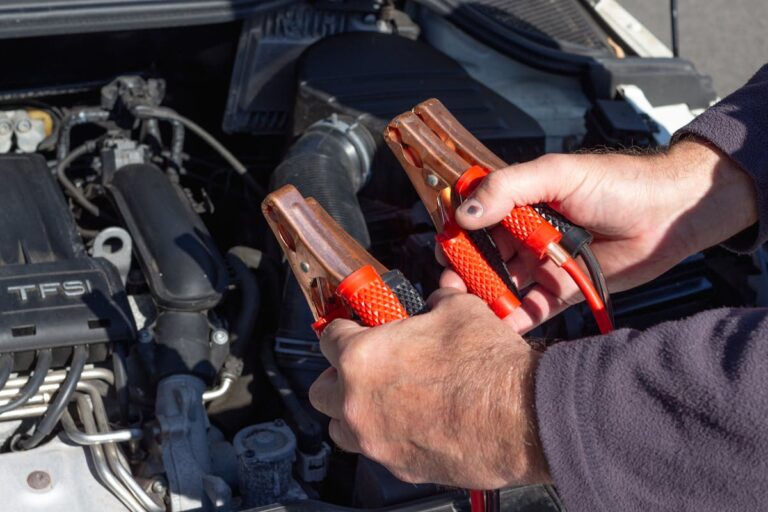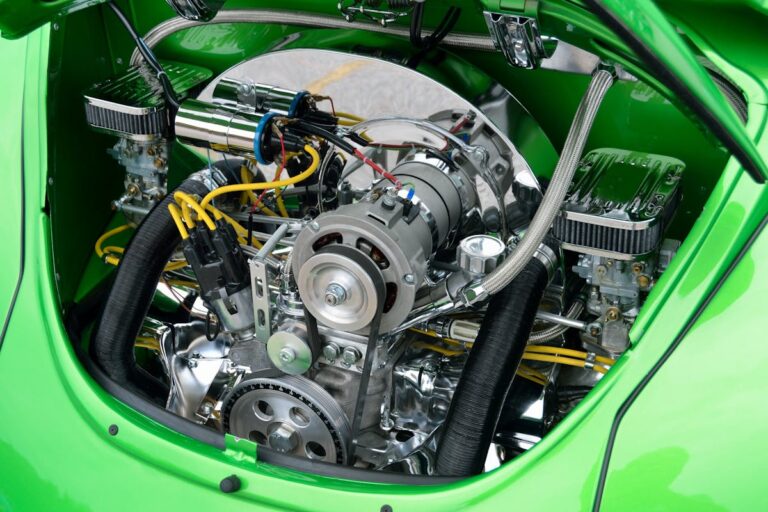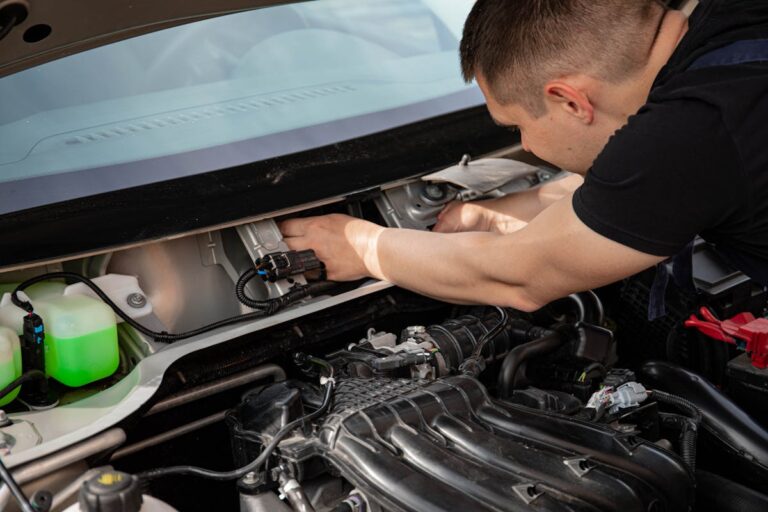As we explore the issue of poor gas mileage, it becomes apparent that numerous factors contribute to this problem. From technical issues like underinflated tires and faulty engine components, to behavioral patterns such as aggressive driving and carrying unnecessary weight, each aspect plays a pivotal role in fuel efficiency. There’s also the question of fuel quality, which can greatly affect vehicle performance. These elements provide a broad scope for investigation and discussion, offering a complex web of intricacies that could fundamentally change our understanding of fuel consumption.
Inadequate Tire Pressure
The often overlooked aspect of inadequate tire pressure serves as a significant contributor to poor gas mileage. When tire pressure is not at the manufacturer’s recommended level, the rolling resistance of the tire on the road surface increases. This, in turn, results in higher fuel consumption, as the engine has to work harder to maintain the vehicle’s speed.
Tire maintenance is essential in ensuring ideal tire pressure. Regularly checking the pressure and adjusting it as needed can result in significant fuel savings. In addition, it can also prolong the lifespan of the tires, reducing the need for premature replacements due to excessive wear.
Monitoring tire pressure is not a complex task. Most modern vehicles are equipped with tire pressure monitoring systems (TPMS) that alert the driver when the pressure drops below the recommended level. However, it’s still advisable for drivers to manually check the pressure using a tire gauge, as TPMS might not always accurately detect minor changes in pressure.
Faulty Oxygen Sensors
While it may not be immediately apparent, faulty oxygen sensors greatly impact a vehicle’s fuel efficiency. An oxygen sensor is a vital component of the vehicle’s engine management system. It monitors the level of oxygen in the exhaust gases and sends this information to the vehicle’s engine control unit (ECU). The ECU relies on this data to adjust the air-fuel mixture, enhancing combustion efficiency and, consequently, fuel efficiency.
When an oxygen sensor malfunction occurs, the ECU receives incorrect data or no data at all. This lack of feedback disrupts the delicate balance of the air-fuel mixture, leading to less than ideal combustion. As a result, the engine either burns excess fuel (resulting in a rich mixture) or insufficient fuel (causing a lean mixture). Both scenarios lead to poor fuel efficiency, signifying the fuel efficiency impact of a faulty oxygen sensor.
Furthermore, a defective oxygen sensor can cause the catalytic converter to overwork, potentially leading to its premature failure. This scenario exacerbates the problem by adding an expensive repair to the already poor gas mileage. Therefore, maintaining the oxygen sensor in good working condition is essential for best fuel efficiency.
Engine Performance Issues
Engine performance issues play a significant role in poor gas mileage, and these can be attributed to factors such as inefficient fuel combustion, faulty engine components, and ignition system problems. Inefficient fuel combustion can lead to unburnt fuel, which is wasted and reduces mileage. Faulty engine components and ignition system problems also result in less than ideal fuel usage, thereby impacting the overall fuel economy.
Inefficient Fuel Combustion
Inefficiency in fuel combustion can greatly impede engine performance, leading to poor gas mileage. Fuel efficiency is significantly undermined when the combustion process isn’t fine-tuned for maximum energy extraction. The combustion process should ideally be a precisely controlled reaction, converting fuel into kinetic energy with minimal waste. However, several factors can adversely affect this process, leading to inefficient fuel combustion.
A rich or lean fuel-air mixture, for instance, can cause incomplete combustion. A rich mixture contains excessive fuel, which cannot be entirely burnt, resulting in wasted energy. Conversely, a lean mixture has insufficient fuel, leading to reduced power output. Both scenarios lead to subpar fuel efficiency.
Combustion improvement can be achieved by maintaining the best fuel-air mixture. This is mainly controlled by the engine control unit (ECU), which adjusts the fuel injection based on input from various sensors.
Engine timing also plays an essential role in fuel efficiency. If the spark that ignites the fuel-air mixture is mistimed, the combustion process becomes inefficient, leading to wasted fuel and reduced power output.
Therefore, regular engine maintenance and tuning are key to ensuring the best combustion efficiency and, consequently, better gas mileage.
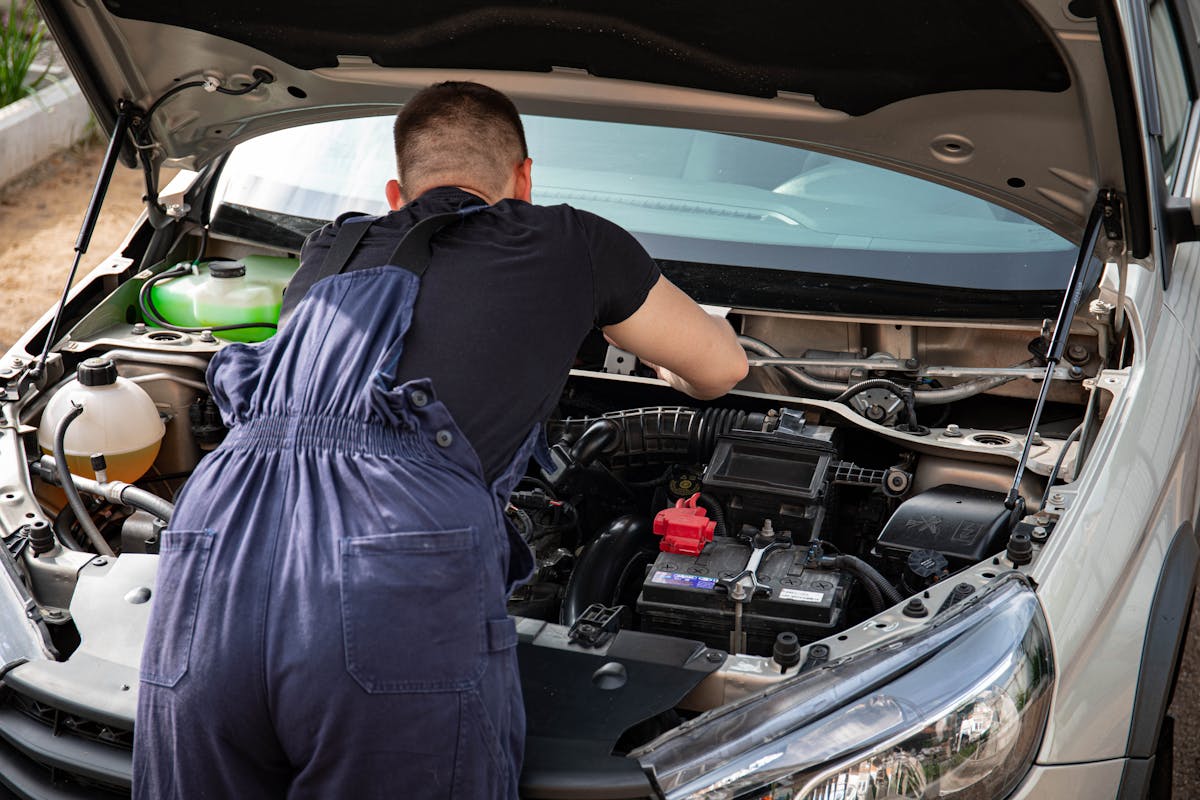
Faulty Engine Components
Moving from fuel combustion to the physical aspects of the engine, it is worth noting that any component malfunction within the engine can negatively impact its performance, leading to poor gas mileage.
One significant issue that can degrade engine performance is engine misfires. These are instances where the engine fails to fire in one or more of its cylinders during the combustion phase. Misfires can lead to unburned fuel exiting the exhaust, resulting in wasted fuel and decreased fuel efficiency. They may stem from a variety of causes, including worn-out spark plugs, damaged coil packs, and faulty fuel injectors.
Fuel injectors are responsible for spraying fuel into the engine’s combustion chambers. If they become clogged or damaged, they can deliver an improper fuel-to-air mixture, causing the engine to work harder and consequently consume more fuel. Additionally, a failing fuel injector can cause an engine misfire, exacerbating the issue.
Regular maintenance and timely replacement of these components is essential to prevent such instances, ensuring ideal engine performance and fuel efficiency. Understanding these underlying factors can aid in diagnosing and rectifying poor gas mileage caused by faulty engine components.
Ignition System Problems
Beyond the domain of fuel combustion and engine components, the ignition system of a vehicle plays an essential role in its overall performance and fuel efficiency. The ignition system initiates the engine’s operation by generating a spark to ignite the fuel-air mixture in the combustion chamber. Any issues within this system can adversely affect the vehicle’s fuel consumption, resulting in poor gas mileage.
One such issue is improper ignition timing, which refers to the precise moment a spark is delivered to ignite the fuel-air mixture. Ideal ignition timing is important for the engine to extract maximum energy from the fuel, hence ensuring optimal fuel efficiency. When the ignition timing is off, it can lead to inefficient fuel use, resulting in higher fuel consumption and decreased engine performance.
Another significant component to evaluate is the condition of the spark plugs. Worn or fouled spark plugs can cause misfires, leading to inefficient combustion and, consequently, higher fuel consumption. As a result, regularly checking and replacing faulty spark plugs is essential to maintain ideal engine performance and fuel economy. In conclusion, maintaining the ignition system, ensuring proper ignition timing, and keeping the spark plugs in good condition are crucial in avoiding poor gas mileage.
Inefficient Driving Habits
Inefficient driving habits greatly contribute to poor gas mileage and increased fuel consumption. Aggressive acceleration, excessive idling, and neglecting regular car maintenance are major culprits that not only diminish fuel efficiency but also accelerate vehicle wear and tear. Understanding these elements and their impact on gas mileage is vital for optimizing fuel economy and extending vehicle lifespan.
Aggressive Acceleration Impact
Exhibiting a lead-footed approach to acceleration can greatly diminish your vehicle’s gas mileage. This act, known as aggressive driving, is characterized by rapid acceleration and deceleration, both of which are considerably detrimental to fuel efficiency.
Aggressive driving behaviors such as hard braking, speeding, and rapid acceleration can lower gas mileage by roughly 15% to 30% at highway speeds and 10% to 40% in stop-and-go traffic, according to the U.S. Department of Energy. The frequent and unnecessary change in speed requires more energy, which in turn, requires more fuel.
When a vehicle accelerates, it burns fuel to produce the energy needed to increase its speed. Rapid acceleration requires a higher rate of fuel consumption as opposed to a smoother, slower increase in speed. The engine management systems have to work harder to compensate for the abrupt increase in power demand, leading to inefficient fuel-air mixture and reduced fuel economy.
Understanding and modifying this behavior can lead to improvements in a vehicle’s fuel efficiency. Smooth and gradual acceleration, coupled with anticipatory driving, can greatly reduce fuel consumption. By doing so, drivers can extend their gas mileage, decrease fuel costs, and reduce emissions.
Excessive Idling Consequences
Another considerable contributor to poor gas mileage is excessive idling, a prevalent but often overlooked inefficient driving habit. The extent of the impact this practice has on fuel economy is often underestimated by many drivers. Even when the vehicle is stationary, the engine continues to consume fuel, leading to unnecessary idle fuel consumption.
A detailed analysis of idle fuel consumption reveals that the amount of gasoline consumed during idling is directly proportional to the engine’s size and the period of idling. The larger the engine, the more fuel it burns while idling. Similarly, the longer the engine is left idling, the greater the fuel consumption. Consequently, excessive idling can greatly contribute to poor gas mileage.
Excessive idling also leads to engine wear. Consistent idling results in incomplete combustion since the engine does not operate at its peak temperature. This leads to the buildup of fuel residues on the cylinder walls, resulting in wear and tear. Additionally, idling leads to excessive use of the engine’s components, causing them to deteriorate faster. Hence, excessive idling is not just a contributor to poor fuel economy, but also a factor in premature engine wear.
Neglecting Car Maintenance
Driving habits aside, skimping on regular car maintenance can also lead to dismal gas mileage. The intricate systems within your vehicle require consistent attention and upkeep. Neglecting car maintenance can result in decreased fuel efficiency, causing your car to burn more fuel than necessary.
Regular inspections are essential for maintaining ideal gas mileage. These inspections allow for early detection of issues that might be negatively impacting your vehicle’s fuel economy. For instance, a clogged air filter can reduce fuel efficiency by up to 10%. Tire pressure is another vital factor – underinflated tires can lower gas mileage by approximately 0.2% for every 1 psi drop in the average pressure of all tires.
Oil changes are another significant aspect of car maintenance affecting fuel economy. Old or low-quality oil generates excessive friction in the engine, forcing it to work harder and consume more fuel. Additionally, the type of oil used can also influence fuel efficiency. Synthetic oils, though slightly pricier, can improve gas mileage due to their superior lubrication properties.
Excessive Vehicle Weight
Often overlooked, excessive vehicle weight greatly contributes to poor gas mileage. This excess weight subverts the energy efficiency of the vehicle, necessitating more fuel to propel the heavier load, consequently degrading the overall fuel economy. Fundamentally, the relationship between vehicle load and fuel consumption is directly proportional; an increase in the former precipitates a rise in the latter.
The key to mitigating this issue lies in effective cargo management. Unnecessary items, especially heavy ones, should be removed from the car when they are not needed. The impact of weight on gas mileage is more pronounced in smaller vehicles than in larger ones, thus, particular attention should be paid to compact cars.
Moreover, it’s not just about the weight inside the vehicle, but also accessories attached to it. Roof racks, for instance, add considerable weight and wind resistance, both of which impede fuel efficiency. Hence, it is advisable to remove such fixtures when not in use.
To summarize, vehicle load and cargo management are crucial factors that influence fuel economy. By managing these aspects properly, we can greatly improve gas mileage, accordingly saving both money and the environment.
Poor Quality Fuel
Fueling up with poor quality fuel can take a toll on your vehicle’s gas mileage. The quality of fuel is mainly determined by two factors: fuel additives and fuel octane. Fuel additives are substances that improve the quality and efficiency of fuel. They help in preventing rust in the fuel system, reducing emissions, and enhancing engine performance. However, when fuel lacks these vital additives, it can lead to inefficient combustion, resulting in poor gas mileage.
Fuel octane, on the other hand, is a measure of how much compression a fuel can withstand before igniting. High-octane fuel combats engine knocking and guarantees smooth combustion, contributing to better gas mileage. In contrast, low-octane fuel is prone to premature ignition, causing engine knocking which adversely affects the engine’s performance and fuel economy.
Therefore, it is essential to use good quality fuel with the right additives and suitable octane rating for your vehicle to achieve peak gas mileage. Poor quality fuel not only impacts fuel efficiency but also accelerates engine wear and tear, leading to costly repairs in the long run. Confirming the right fuel quality is an effective way to enhance your vehicle’s gas mileage and overall performance.
Worn Out Spark Plugs
The longevity of spark plugs plays an essential role in determining gas mileage. As these vital components age or become worn out, they can markedly affect your vehicle’s fuel efficiency. A worn-out spark plug can cause a misfire, which in turn leads to inefficient combustion. This inefficient combustion directly influences engine performance and can lead to poor gas mileage.
Spark plug maintenance is a key aspect of vehicle upkeep that should not be overlooked. A well-maintained spark plug can guarantee a clean and efficient combustion process. This results in an optimized fuel burn, which improves engine performance and, subsequently, fuel efficiency. Conversely, a neglected spark plug can build up deposits over time, resulting in a weaker spark that can cause the engine to work harder. This overstraining of the engine can expend more fuel than necessary, consequently reducing your vehicle’s miles per gallon (MPG).
Frequently Asked Questions
Does Weather Affect Gas Mileage?
Yes, weather considerably impacts gas mileage. Temperature extremes cause vehicles to operate less efficiently. High humidity levels can also affect engine performance, further decreasing fuel economy. Both factors contribute to variations in gas mileage.
How Does Car Age Impact Fuel Efficiency?
Car age can greatly impact fuel efficiency due to factors like engine wear and deteriorating components. Regular maintenance practices can mitigate these impacts, but overall, older vehicles tend to be less fuel-efficient than their newer counterparts.
Are Hybrid Vehicles More Fuel-Efficient?
Yes, hybrid vehicles are typically more fuel-efficient due to advancements in hybrid technology. The integration of electric vehicle advantages, such as regenerative braking and electric motor drive, considerably enhance fuel efficiency and reduce emissions.
How Does Air Conditioning Usage Affect Gas Mileage?
Air conditioning usage can considerably impact fuel consumption. The compressor’s operation requires energy, consequently increasing engine load. This extra load results in higher fuel usage, thereby affecting the vehicle’s overall gas mileage negatively.
Does the Type of Oil Used in My Car Affect Fuel Consumption?
Yes, the type of oil used can influence fuel consumption. Higher oil viscosity can increase engine friction, reducing efficiency. Synthetic oils, with their inherent benefits, can improve lubrication, thereby enhancing fuel economy.
